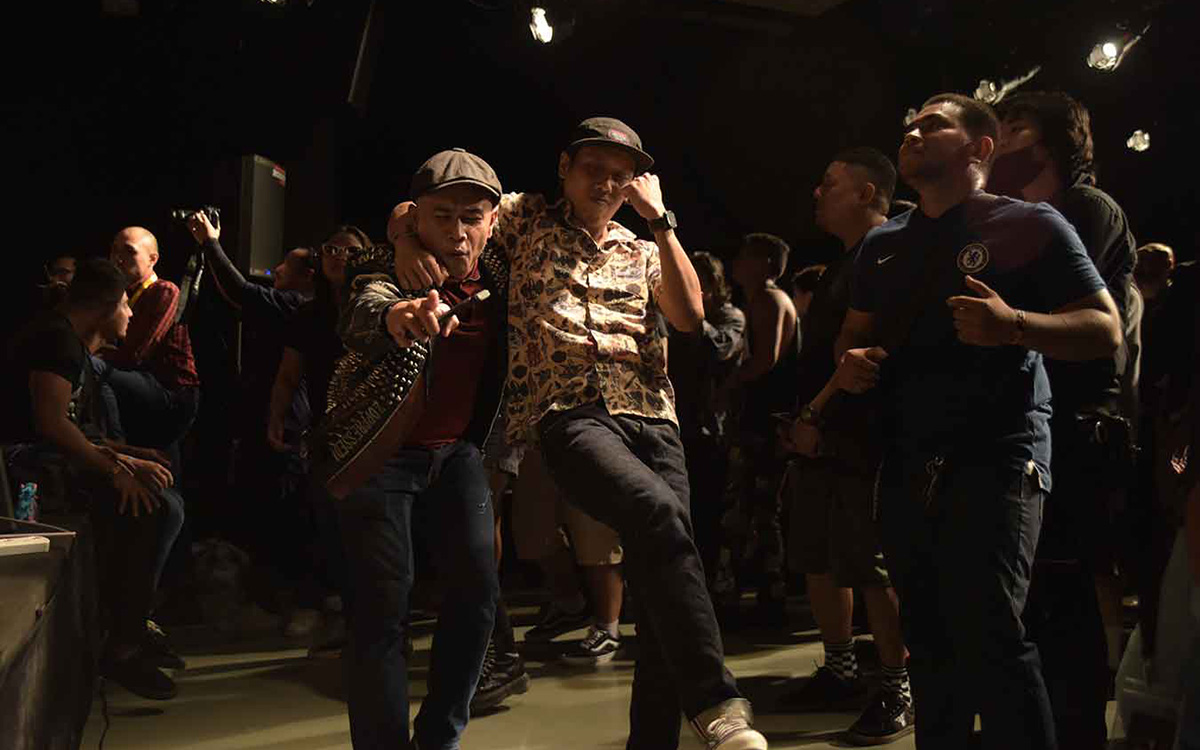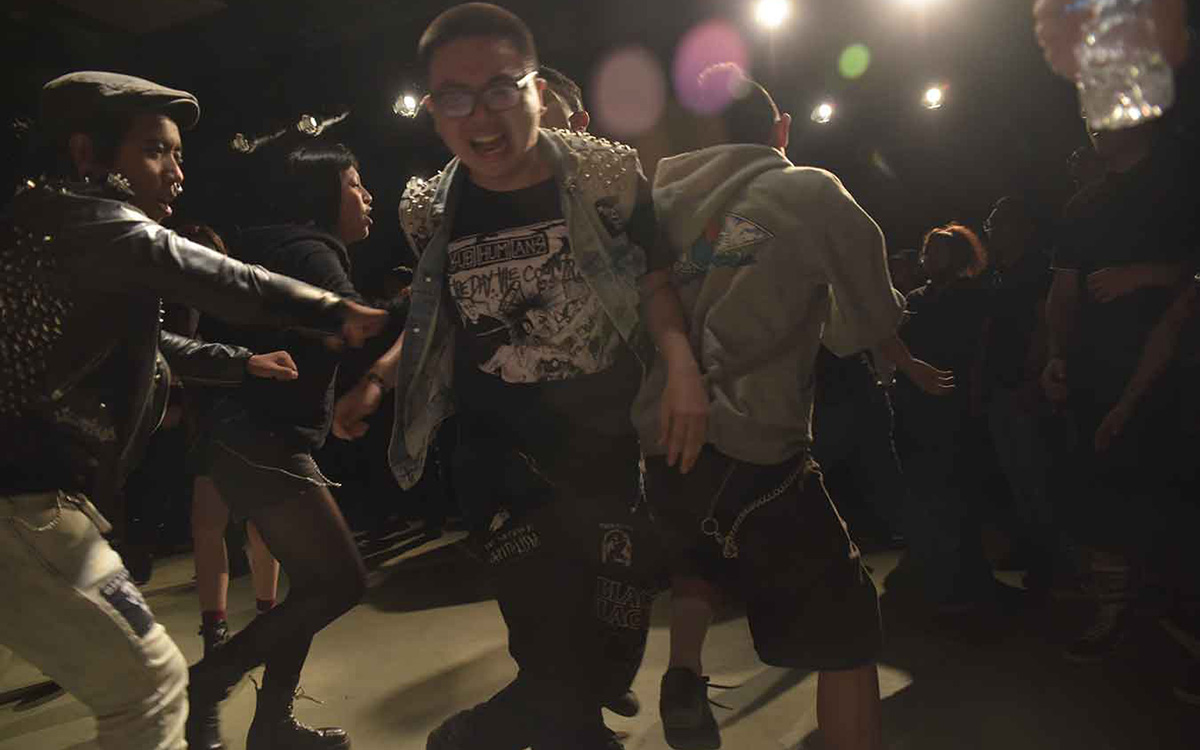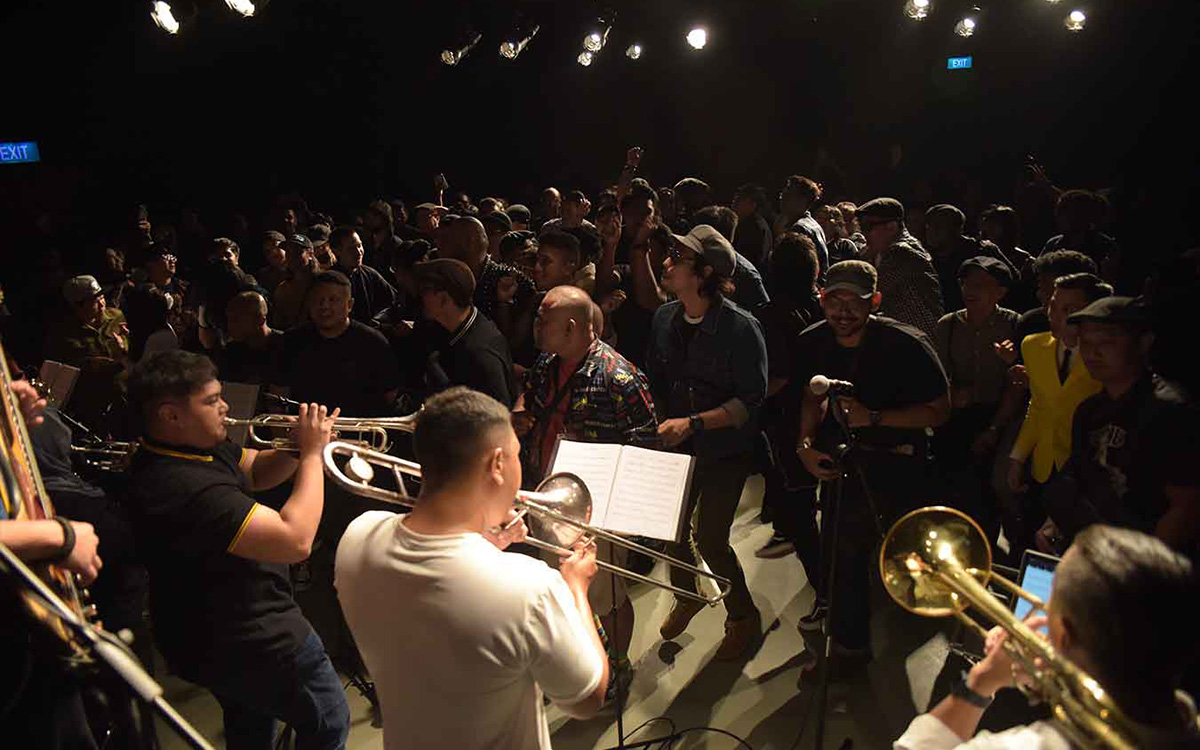
Time taken : ~10mins
Swarnabho is a Baybeats Budding Writer who was mentored by Eddino Abdul Hadi, music correspondent for The Straits Times and Hidzir Junaini, freelance journalist at NME Asia, Rice Media and FEMALE Magazine.
Most people on the street wouldn’t have a clue about ska–the multi-faceted, serotonin-inducing music genre that came from Jamaica. It has an unestablished status in the mainstream despite having attributes that everyone loves about music–good vibes, positive messages which we can all get behind, and some of the catchiest (and radio-friendly) rhythms and melodies.
That isn’t to say ska isn’t loved by many. Ska is appreciated all over the world by casual listeners and enthusiasts alike. This includes Singapore where the ska community is represented by a small but dedicated group.
Singapore’s ska scene is special because it incorporates the elements of local traditional sounds into ska music, such as creating a unique concoction that reflects the richness of Singaporean culture. Beyond the interesting compositions, many Singaporean ska songs are distinctive for lyrics that capture regional idiosyncrasies–you won’t find a song celebrating the end of Ramadan like Cesspit’s lively Raya Raya on the Billboard Hot 100. Shah Rizal, Cesspit’s alto saxophonist, tells me how this approach to crafting lyrics “not only adds a layer of authenticity to the music but also helps the audience [to] connect with the Singaporean landscape”. This specificity of Singapore’s heritage is part of why local ska is important.

The ska community coming together to dance at Offbeat 2022
In the same vein, ska songs often discuss socio-economic and political themes, serving as a critique of the society the musicians live in. In Singapore’s context, issues like the high cost of living and the (sometimes not so) subtle tinge of racism that colors the lives of minority races may be discussed in ska songs.
“The upcoming song that I am writing is about how everything is so expensive. Working our ass off for 45 hours a week is still not enough.” says Noor Hasif bin Ahmad, the guitarist and backup vocalist of Murder by Ska, a veteran local ska band. However, he balances this view by saying how “the positive side of living in Singapore is the peace we have lah. We put this in the song to remind people that despite bits of negative things that you see in Singapore, there's still mostly positives that we can benefit from and to not take things for granted".
Even when detailing negatives, ska lyrics highlight positivity at the forefront of all their songs unlike the more aggressive and incendiary politically charged lyrics of punk rock songs for example. Ska music underlines that maintaining optimism is the be-all and end-all of life in general. “Our music lingers around the message that everything is going to be fine. Just be true to yourself and whenever you see injustice, stand up for what is right,” says Noor Hazik bin Ahmad, Murder By Ska’s drummer and Hasif’s younger brother. Ska listeners bond over universal struggles, but the music also uplifts by spreading messages of peace, love, and positivity. This is what inspires the strong sense of unity within the ska community.
Singapore’s local ska scene is a small part of a bigger melting pot of various alternative musical subgenres and their corresponding fans. In an unexpected and special way, ska gigs encapsulate the harmonious Singapore we always hear about. People of all ages, walks of life and subcultures congregate to hear ska played live. Helmi bin Hamdi, vocalist and second guitarist of Murder By Ska, shares that “you will see punks, metalheads and all the different people from the scene come together”—there are no purists.

A punk at a ska show depicts the diversity at ska events
The usual sense of tension between older OGs of a subculture and the new kids on the block is completely absent in the ska scene. Everyone is there for their shared love for the music. “I don’t care whether you’re old or young or new or an OG. I just see it as—you love ska and I love ska, let’s dance,” Shah tells me as Abdul Karim, Cesspit’s trumpet player, nods in agreement. The community’s openness and complete lack of ego comes across very strongly. There is zero tolerance for discrimination, which is a given considering that unity is at the very root of the music, and everyone is welcoming.
For some of the older ska fans who have been around for a while, ska events like Offbeat Festival are de facto friendship reunions. Karim shares that “you can literally see people that you knew from 15 or 20 years ago”. Many of them bring along their wives, husbands, and even their children. “We all grew together,” he says.
The very sound of ska music cheers you up and makes you want to move around. Some songs have a sweet and slow smoothness to them while others, like The Specials’ rendition of Monkey Man, are more upbeat, but all of them have an exceptional ability to induce a sense of carefree joy that physically manifests itself in the tapping of feet at the very least or, if you’re truly feeling the music, skanking—rhythmically running on the spot as your arms move to the groove. The addition of horns such as the trumpet, trombone, and saxophone in ska only adds to this.

Geylang Ska Syndicate play their brass instruments to an audience of ska lovers
Like many musical genres, ska has its own subculture with a unique stylistic leaning. Oftentimes, members of the community, “Rude Boys” and “Rude Girls”, are distinguishable by their immaculate dressing as part of the ska aesthetic—jackets, porkpie hats with feathers, suspenders, pencil skirts, tailored pants, checkered shirts and dancehall shoes. However in Singapore’s equatorial climate, going all out with your ska outfit is typically reserved for gigs rather than everyday wear. “It’s not practical but it’s nice,” says Hazik. Hence, perhaps the only chance you will ever have to catch someone fully dripped out, ska-style, is to go to a local show yourself. These shows have been popping up all over the place in the post-pandemic live music boom and can be found being promoted on the Instagram pages of the different bands as well as local gig promoting platforms like low-cal gigs sg on Telegram.
All musical genres have their place and ska fits perfectly in Singapore to remedy the stressful and noisy lives we live. Ska, at its core, is happy music. As Elmi puts it so aptly, “It just makes you smile.”
Contributed by:
Swarnabho is a Baybeats Budding Writer who despises finance, adores cai fan, and is just happy to be here. On most days you can find him either writing for his blog or standing right behind you, always watching.
The Baybeats Budding Writers mentorship programme has been running since 2014, building a community of writers to cover the growing Singapore music scene. Under the guidance and mentorship of Eddino Abdul Hadi, our budding writers learn more about music journalism and how to be a voice for the local music community.
Dive into the mosh
The beast is back—Singapore's largest free alternative music festival returns with another killer line-up featuring bands from the UK, China, Japan, Indonesia and more!